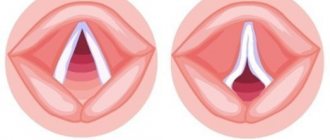Martial arts in the depths of the brain
The most common movement we make in our sleep is rapid eye twitching. When we dream, our eyes move according to what we are dreaming. For example, we see a tennis match in a dream, our eyes move, following it in flight. If you see that the sleeper's eyes are moving, this is the surest sign that he is dreaming.
- 222
More details - 540
More details
- 164
More details
- 540
More details
Hypnogogic seizures seem to be a sign that the motor portion of the nervous system retains some control over the body when sleep paralysis begins to take hold. Instead of one sleep-wake switch in the brain that controls our sleep, we have two opposing systems. They balance one against the other during the daily cycle.
The reasons are inside!
Why did you suddenly start being thrown out right on the threshold of the sleepy kingdom? Obviously, something prevents the brain from adjusting to sleep and taking it “for granted.” The causes of this condition lie not in the organs, but in the psyche.
| Panic attacks or their subconscious anticipation, fear of insomnia | Many alarmists become fixated on their most unpleasant symptoms, beginning to subconsciously wait for their recurrence. This often happens before falling asleep. Frightened by the first panic attack that came at night, the patient begins to wait for her inevitable return. Naturally, fears come true - the body reacts properly: pressure rises, pulse jumps, sweat appears. It is for this reason that a person is thrown out of sleep with VSD or hypochondria. |
| Extrasystoles, respiratory failures | Our brain protects us even in our sleep, ensuring the stable functioning of our internal organs. If some kind of failure occurs, the brain immediately reacts and takes action. But sometimes the vegetative system is unable to instantly restore the impaired function: proper heartbeat, breathing. As soon as extrasystoles begin in a dream, provoking respiratory failures, the brain believes that its owner is in danger and, perhaps, is dying from some surrounding circumstances, so it abruptly wakes him up. |
| Lack of sleep, stress, central nervous system disorders | When a person’s nerves are weakened, there is some discord between the body and the brain, which leads to a sharp awakening at the moment of falling asleep. The brain is already completely ready for the start of dreams, but the body is still calming down, trying to lie down more comfortably, feel the work of each organ - is everything okay? As a result, the body does not calm down and begins to wake up the brain, letting it know that it is not time to sleep yet. And the man jumps up in horror, breaking out of his incipient visions. In such cases, it is necessary to first relax the body with a warm bath or herbal tea. If you drink coffee or strong tea less than two hours before bedtime, the same effect can occur - the body will not keep up with the brain, and you will not be able to fall asleep. |
| Neuroses and fears repressed into the subconscious | Many people are familiar with the “horror story” from childhood: don’t sleep on your left side, it’s hard for your heart to beat. In fact, our hearts don’t care at all what position we sleep in. In a lying position, it receives additional stress in any case, which is why many core patients are recommended to sleep half-sitting. Lying on his left side, a person is subconsciously afraid that his heart muscle is starting to work incorrectly. As a result, the brain “prepares” for emergency measures, i.e. he is determined that the owner will face some kind of test. It is the beginning of sleep that is ultimately perceived by the brain as danger, a departure to another world. Therefore, when a frightened person falls asleep, he is thrown out of sleep. The same is true with fear of death and cardioneurosis. As soon as the heart begins to beat slower (a natural decrease in pulse), the panicker’s brain immediately begins to desperately save him from imaginary death by waking up. |
We recommend reading: When should chest pain on the right be alarming?
We sleep more often than we think
What happens in the brain when we fall asleep? It “switches off”, that is, parts of the brain become less active. The global pattern of brain waves (or rhythms) also changes greatly. Scientists were able to record the electrical activity of the sleeping brain and see the so-called delta rhythms - slow waves with high amplitude that synchronously roll throughout the brain. In one second of the delta rhythm, 1-4 oscillations occur - this is tens of times slower than when awake! (Of course, when a person is in deep sleep, scientists do not need to do an electroencephalogram to determine that the person is asleep.)
The state of microsleep is well known to everyone. Have you ever been in a very boring lecture and watched a friend whose eyelids slowly droop, his head leans towards his desk, and eventually he jumps up sharply, as if waking up? This is microsleep. It usually lasts from 0.5 to 15 seconds. Its insidiousness is that the person does not even suspect that he has fallen asleep: it seems to him that he was simply distracted. But EEG data shows that this is precisely a dream, since the brain rhythms slow down and acquire a high amplitude, as during normal sleep.
The state of microsleep also occurs in vigorous, well-rested people if they are forced to do something incredibly boring, not to mention those who sleep very little.
In one study, volunteers were placed in an MRI scanner (which some are already sleepy in) and asked to continuously track the movements of an object on the screen using a joystick. Most participants experienced at least 36 episodes of microsleep, averaging 3 seconds each, over a 50-minute period, although the subjects themselves did not notice this.
During the experiment, scientists monitored the activity of different parts of the brain. It turned out that during microsleep, the activity of the thalamus, which is responsible for transmitting information from the outside world to the cerebral cortex, decreased, but the activity of the anterior parts of the brain increased. The anterior regions are credited with cognitive control functions, so scientists have suggested that this region of the brain tries to overcome falling asleep and brings a person out of microsleep.
But the line between sleep and wakefulness blurred even further when, in 2011, scientists led by neuroscientist Giulio Tononi discovered that groups of neurons in the brain can sleep while a person is apparently awake. They called this phenomenon local sleep. Local sleep is harder to detect because it requires monitoring the activity of each individual neuron rather than the electrical rhythms of the entire brain, which requires invasive intervention. Therefore, for the first time, local sleep was discovered in rats.
In the waking brain, neurons are very active - they are constantly making noise and talking. And during normal sleep with slow rhythms, entire ensembles of neurons spontaneously become silent for a very short time (no more than 0.5 seconds), and then begin to make noise again. Scientists call such states of silence of a group of neurons down state. They do not happen simultaneously in all areas of the brain - for example, a hundred neurons connected to each other suddenly “decide” to go silent for a few hundred milliseconds. When this occurs in the waking state, the group of neurons is said to have entered local sleep.
At the same time, local sleep does not noticeably affect the state or activity of a person. The brain is able to continue functioning normally, allowing small groups of neurons to “switch off and take a nap” one at a time.
Tononi's group wanted to find out whether local sleep was associated with sleep deprivation. For 4 hours, neuroscientists shook the rats in every possible way, gave them new toys and food, and knocked on their cages to prevent them from falling asleep. All this time, while the rats’ need to sleep was increasing, the number of local sleep episodes increased in different parts of the experimental subjects’ brains. And when the rats were finally allowed to rest properly, the frequency of episodes of “neural silence” began to gradually decrease. The greater the lack of sleep, the more often local sleep of groups of neurons occurs. Scientists suggest that this mechanism is needed to compensate for brain fatigue; it allows groups of neurons to rest in turn.
To prove that significant or complete lack of sleep, local sleep and fatigue, which reduces productivity, are related to each other, Tononi's team created a special task for rats. The animals had to get sugar balls through a gap - this is not an easy task for a rat, it requires attentiveness and good coordination. When the rats were tired, they were more likely to make mistakes and lose the sugar ball. So, apparently, even if we successfully combat microsleep, our productivity and attention are noticeably reduced.
Scientists are studying microsleep especially closely in connection with activities that do not require constant involvement and can be performed on autopilot. For example, during long and monotonous driving, drivers often fall into a state of microsleep (and their neurons, probably, into a state of local sleep), which is deadly for both them and passengers. Stanley Coren, in his book “Secrets of Sleep,” even suggests that the disaster at Chernobyl could have occurred due to excessive fatigue and lack of sleep of the reactor operators and blames microsleep for everything, although this is not easy to prove.
Might be interesting:
How I decided to sleep two hours a night to get more done
Why does a child twitch in his sleep?
The baby shudders when he falls asleep because his sleep phases are different from adults. In adults, deep sleep lasts on average 2.5 hours, in children - only an hour. During the superficial phase or, as it is also called, napping, the baby moves his arms and legs, says something, smiles and even laughs. His consciousness and brain are actively working, and everything that he imagines is displayed in reality. There is no need to wake up the child at this moment; this is fraught with severe fear and stress.
Why does one experience this every night, while another sees it every six months? It's all about the baby's temperament, the level of mental development, and the state of the central nervous system. Some children easily “throw everything out of their heads,” while others relive the moment over and over again.
You can help your baby calmly immerse himself in the kingdom of Morpheus with the help of:
- Warm bath half an hour before bedtime. It would be nice to add soothing herbs (mint, sage);
- Comfortable temperature in the bedroom. Optimal - 20 degrees Celsius;
- After reading a good story before bed, chat for a few minutes about pleasant trifles.
How do internal organs work?
The blood flow in the human body does not stop at night, it only slows down a little, like the heartbeat. The breathing rate decreases and it becomes less deep. The work of the kidneys and liver is similar. Body temperature drops by one degree. The stomach does not change its working pace.
Different senses work differently. For example, a person wakes up from loud or unusual sounds, but cannot always respond to the smell.
Best materials of the month
- Why you can't go on a diet on your own
- 21 tips on how to avoid buying stale food
- How to keep vegetables and fruits fresh: simple tricks
- How to curb your sweet cravings: 7 unexpected products
- Scientists say youth can be extended
A change in temperature causes the body to awaken. This can be noticed when a person throws off the blanket in a dream. As soon as the body temperature drops to 27 degrees, he will wake up. The same thing happens when it rises to 37 degrees.
And again the alarm clock disturbed my sleep...
Each person has his own individual biological rhythms. They can especially affect your sleep state. As you know, human sleep includes several phases. It is most difficult to awaken during moments of deep sleep. In such a situation, the body is completely relaxed, blood pressure is reduced, and the brain works in a mode unusual for a cheerful state. When at such a moment a person is suddenly awakened by someone or something, the organs and systems simply do not have time to rebuild. With an unexpected and spontaneous awakening due to outside influence, a strong release of adrenaline into the blood occurs, the pressure rapidly jumps, which is especially harmful for people who are prone to hypertension. Some doctors say that abrupt awakening to a loud alarm can trigger a hypertensive crisis. In addition, the pulse quickens, the heart begins to contract in the wrong rhythm, and the brain does not have time to fully awaken.
How to Simply Recommend
Why the medicine does not work The key to successful treatment is, of course, following all the doctor’s recommendations and informing him of all significant changes during therapy. However, a specialist can talk as much as he wants about the regimen and duration of taking the drug, but most patients will still violate these rules. Read more
Within the nervous system and mental state, the sound of an alarm clock or an unexpected awakening in the middle of the night causes a surge of aggression and irritability. Moreover, people who are forced to constantly live in such conditions are very prone to depression, anxiety disorders, and suicidal thoughts begin to dominate their consciousness. The nervous system, under the influence of regular abrupt awakenings, suffers greatly and is forced to work incorrectly. This leads to nervous tics, insomnia, nightmares and various painful conditions.
When a person's peaceful sleep is disturbed, serious stress effects occur. With regular, unindependent recovery from the sleep state, complete exhaustion of the body is possible. Due to a disruption in biological rhythms, people who wake up abruptly and jump out of bed are more likely than others to suffer from memory problems. They become impulsive, absent-minded, inattentive, lethargic. Drowsiness, apathy and laziness are often constant companions of such people.
What to do?
How to deal with microsleep so as not to endanger yourself and others? The most reliable advice is to get a good night's sleep and avoid working night shifts, which is not always possible in modern times.
Scientists advise: if you feel exhausted and sleep-deprived, lie down for 15–40 minutes (this type of sleep is also called a power nap, as it significantly increases energy).
In 1994, NASA conducted experiments with pilots, and it turned out that those who dozed for 40 minutes before a flight had 4 times fewer episodes of microsleep than those who did not doze. If you don’t have time to sleep at all, then any activity: movement, upbeat music or conversation (probably even with yourself) will help you avoid falling into microsleep.
Physical exercise is especially good for invigorating. One study even found that a 10-minute walk up the stairs worked better than a small dose of coffee, although the study only involved young girls. And for car drivers, there are special devices: they monitor the level of drowsiness by pulse, skin conductivity or sudden movements of the head, and wake up a person using sound, vibration or even a weak electric shock.
What happens to the muscles of the body
Everyone understands that the most comfortable sleeping position is lying down. But why not sitting or standing? But because for complete relaxation the body must be straight, as in a standing position, but in this case the muscles will not be able to relax.
Of course, a person can sleep in other positions, but the sleep will be incomplete. For example, when sitting, the muscles of the back and neck do not relax because they do not feel support. The muscle fibers connecting the vertebrae are stretched, and the joints responsible for their mobility are compressed. Therefore, after such a dream a person feels pain in the neck and lower back.
People who sleep sitting and even standing may fall (the muscles relax and the body seeks a comfortable resting position). The desire to lie down is a defensive reaction.
But you should not think that during sleep, all the muscles of the human body relax and rest, for example, the eyes and eyelids are always tense.
Why does our body shake when we fall asleep?
Imagine being comfortable and safe in bed, relaxing after a long day and ready for a good night's sleep. But suddenly you were rudely awakened by a violent jolt to your body. Sounds familiar? Scientists estimate that 70% of the population experiences these crazy jerks at some point in their lives.
Cause of hypnotic tremors during sleep
What is a hypnotic jerk? Between the time you get into bed and the time you actually fall asleep, you are in a stage called the "hypnotic stage of consciousness." The time between being awake and sleeping is the time when the brain is receptive to being affected by muscle jerks.
This is what happens during a hypnotic jerk. The brain is notified that you may wake up quickly because something is happening, such as a muscle jerk. The feelings experienced at this time may resemble shock, flinching, or a quick and intense reaction, depending on the person's instincts and innate response.
Possible Causes It is difficult to determine the exact causes of hypnagogic jerks. Although this is not confirmed by any means, there are several theories as to what causes these sleep disturbances.
Medical Cause There may be medical causes for hypnotic jerks, such as restless leg syndrome or brain lesions. Because restless legs syndrome is a nervous system disorder that causes the legs to want to move, this can lead to muscle tears ending in a ghostly jerk. Brain injuries can also cause webbed kinks because they change activity in the brain and open it up to the point of possible malfunction.
Anxiety Someone who is more stressed than the other person or experiences more anxiety is likely to experience these tremors. Some believe that these jerks are a defense mechanism by the brain to keep the body awake. This can be common for people who have a lot on their mind and their brain makes sure that they actually want to shut down and go to sleep. Without this jerk, the body would drift off to sleep, unable to remain awake. When these bizarre jerks occur, you can give up sleep.
Jerking may occur as the brain prepares the body for this deactivation period. This may be the result of abnormal activity in the brain or as a natural side effect of the transition.
Sleep Disorders Sleep disorders, such as nightmares and narcolepsy, lead to abnormal activity in the brain, including neurotransmitter changes, which increases the risk of hypnotic jerk. If hypnotic jerking is a secondary effect of a sleep disorder, it is usually associated with hallucination and paralysis.
These jerks are definitely amazing and not a great way to start a long nap. While there may be several different causes for these jerks, which may have other harmful side effects, these jerks in and of themselves do not pose a health risk. If possible, try to calm down a bit and work on falling asleep.
Between life and death
During one of my shifts in a hospital, such an incident occurred. A patient was admitted at night - a man of about fifty with a hypertensive crisis. In the morning, during my rounds, I see that my patient is fast asleep. I try to wake him up, but he doesn’t wake up. “Coma,” I think and run to the neurologist.
When we entered the room five minutes later, the bed was empty. “I got up and went to the toilet,” say my roommates. Then the door opens, my patient appears, not paying attention to us, goes to bed and falls asleep again.
In general, he was immediately transferred to the neurological department, where four days later he finally woke up and was discharged out of harm’s way. This is how I first encountered a phenomenon called “lethargy.”
Why do they hibernate?
Firstly, lethargy in people can be a consequence of conditions associated with a threat to life. For example, head injuries, serious poisoning, large blood loss, physical exhaustion. Such lethargy usually lasts until the body puts itself in order.
The second reason is mental pathology. Thus, lethargy is reminiscent of catatonic stupor, which occurs in certain types of mental disorders and lasts for years. In this case, the person understands everything that is happening around, but is not able to move or even open his eyes. Psychogenic (hysterical) lethargy occurs in sensitive people as a defensive reaction to severe stress: dismissal from work, husband leaving, positive pregnancy test. All this can lead to long-term (up to several days) uninterrupted sleep. In this case, the passed out person comes to his senses from time to time to go to the toilet, and then falls asleep again.
Reason three: in hospitals, lethargy is not an interesting phenomenon, but a formidable symptom, which is often a harbinger of coma. In addition, there are drugs whose side effects include lethargy, such as interferon. Apraclonidine eye drops can cause severe lethargy in infants.
And finally, true lethargy: it is rare (only a little more than ten cases per year are recorded throughout the world), the cause of its occurrence is unknown to science. There are two most popular hypotheses:
- lethargy is caused by a virus unknown to science:
- There is a connection between lethargy and streptococcus, which causes a common sore throat.
Tales from the Crypt
Outwardly, lethargy resembles deep sleep. It is almost impossible to wake up such a “sleeping” person, but in all other respects he is fine: he breathes normally, his heart beats, his skin color is normal. In very rare cases, a picture of “imaginary death” is observed: blood pressure drops sharply, the pulse is barely detectable, breathing becomes shallow and rare. Apparently, this is where the ominous stories about people who were buried alive came from.
For the most part, such stories are based on ordinary rumors and have no basis. The real cases where a living person was placed in a coffin - one or two and there were no more. The most famous: in 1838, in one of the English villages, a coffin with a deceased person was lowered into a grave, and when they began to bury him, a sound came from the coffin. When the coffin was dug up and opened, it was already too late - the “dead man” had suffocated.
This story went viral, and immediately a wave of “similar facts” swept across the world. Writers also added fuel to the fire. The titles of Edgar Allan Poe's stories speak for themselves: “The Premature Burial” and “Buried Alive.” As a result, many people began to fear being buried alive. The great Russian writer N.V. also belonged to them. Gogol. Ironically, when his grave was opened in 1931, a torn shroud was discovered. Of course, no one believed the explanation that the shroud had become unusable due to natural reasons...
You have to fight fear somehow. In the middle of the 19th century, inventive Germans came up with a special device to help the imaginary dead: contacts were attached to the hands and feet of the deceased, which, at the slightest movement, closed an electrical circuit, which simultaneously turned on a bell and a fan. After another “dead man” came to his senses in an English morgue (one hundred and twenty years after the first), a decree was issued according to which all morgues in the country should have a bell so that the “revived” could call for help.
The current trend is to place a mobile phone in the coffin with the deceased. However, these days the likelihood of being buried alive is minimal. In the deepest lethargy, the doctor is able to detect signs of life in the patient. Heart sounds are heard, and muscles and nerves contract in response to electrical stimulation; the reaction of pupil dilation to pain persists. If in doubt, you can take an electrocardiogram and conduct an encephalography.
Sleeping Beauties
Nadezhda Lebedeva slept the longest lethargic sleep, falling asleep for twenty years after a quarrel with her husband. This incident is included in the Guinness Book of Records.
Nazira Rustamova from Kazakhstan slept for sixteen years and woke up to a phone call in 1985.
However, cases of prolonged lethargy are quite rare. More often, lethargic sleep occurs periodically. People may fall asleep for several days, wake up, and then go back to sleep. At the same time, they still manage to work. Those who have suffered lethargy can fall into it again with attacks that can catch them anywhere.
In television series, the longest case of lethargy is the dream of Cece Capwell (“Santa Barbara”), which lasted almost a hundred episodes. However, in truth, part of this time he only pretended to be asleep in order to expose his evil relatives.
It is known that bears, hedgehogs, and snakes hibernate for several months. But even animals that do not hibernate can experience lethargy. This is a well-known case of the lethargic sleep of a female boxer, Martha, who slept for several years and even brought puppies during this time. In animals, as in humans, lethargy is quite often a sign of serious illness.
Don't sleep, you'll freeze
So, the person falls asleep and never wakes up. He is taken to the hospital at his place of residence with a diagnosis of “coma of unknown etiology.” They conduct a toxicological study, invite consultants, take an encephalogram, and if possible, do a computed tomography scan.
A person who sleeps, and especially after such a long sleep, is completely helpless. Doctors have to keep him breathing, provide him with nutrition, and fight bedsores and infections.
With prolonged lethargic sleep, metabolic processes are reduced, and this has become the reason for the myth that during “hibernation” people practically do not age. In fact, due to bedsores, septic damage to the kidneys, bronchi, and vascular atrophy, such patients often return to normal life as disabled people. Therefore, the most important thing for them is good care.
It’s the 21st century, but lethargy is still not cured. The only way out is to wait until the person comes to his senses on his own.
Body temperature
Your body temperature helps regulate your circadian rhythm and changes throughout the night. When you first fall asleep, your body temperature drops to begin your sleep cycle. If your bedroom is too hot, you may take longer to fall asleep. This directly affects the quality of your sleep and how rested you are.
The National Enquirer accuses Markle of stealing Diana's jewelry
Belle's song characterizes Sagittarius: Disney songs for every zodiac
We prepare an unusual fruit pizza: children instantly eat this dessert
The ideal temperature for a good night's rest ranges from 15 to 19 degrees Celsius. So if you constantly wake up during the night (especially in the summer), then consider using an air conditioner or fan. Also, taking a hot shower or bath before bed can help signal your brain that sleep is on the way.
If you feel too hot, you can try changing to lighter pajamas. If you experience night sweats, you should drink more water, as dehydration can also disrupt your sleep. For example, I often wake up at night because I’m hot, and a little later because I’m cold.












